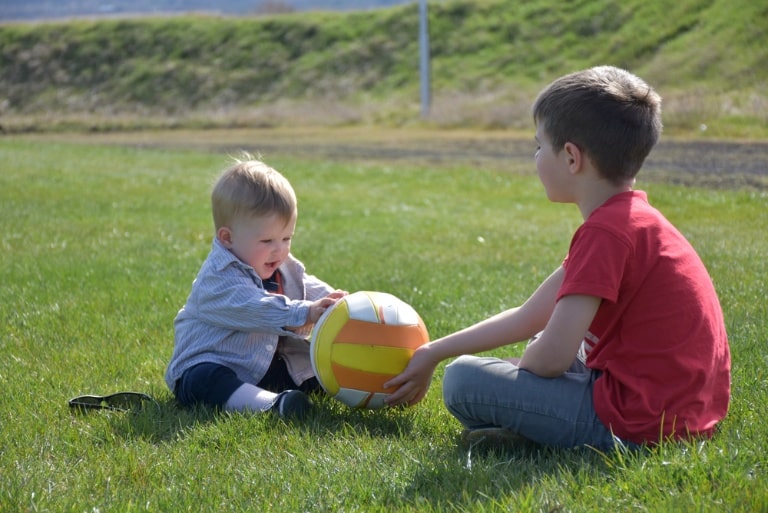Why Your Immune System Needs Mud, Not Sanitizer

In the quest for cleanliness and disease evasion, maybe unwittingly, we have declared war on the very microbes essential for the normal development of our immune systems. Rising scientific research supports the notion that our over-sanitized environments—with antibacterial soaps, sanitizers, and reduced outdoor exposure—might account for the unprecedented rise in allergies, asthma, and autoimmune disease.
Our immune systems, over millions of evolutionary year,s have had experience with a broad-based microbial world, including the rich bacterial life of the soil. Without regular exposure, our defense mechanisms can become befuddled and turn on innocent agents or even us. It’s not about foregoing hygiene but rethinking our relationship with dirt and microbes.
In this article, we’ll explore how the “hygiene hypothesis” explains rising immune disorders, examine why certain microbes benefit our health, look at where sanitization has gone too far, distinguish between beneficial and harmful microbial exposures, and offer practical ways to safely increase your microbial diversity while maintaining appropriate cleanliness.
The Hygiene Hypothesis
In the late 1980s, researchers noticed something puzzling: children growing up on farms or in less-developed countries had significantly fewer allergies and autoimmune diseases than children in cleaner, more urban environments.
This observation led to what scientists now call the “hygiene hypothesis”—the idea that our immune systems need exposure to certain microbes, especially during early childhood, to develop properly. Think of your immune system like a security team that needs training.
Without encountering enough diverse “practice threats,” this team doesn’t learn to distinguish between actual dangers (like harmful bacteria and viruses) and harmless substances (like pollen or food proteins). The result is an overreactive or confused immune response that targets innocent bystanders.
Studies have consistently found that children who grow up with more exposure to diverse microbes—through playing in dirt, having pets, living on farms, or even having older siblings who bring home germs—have lower rates of asthma, allergies, eczema, and even some autoimmune conditions.
The sterilized environments we’ve created, while protecting us from certain pathogens, may have inadvertently removed the microbial teachers our immune systems evolved to learn from. This doesn’t mean we should abandon hygiene altogether, but rather find a better balance that allows for beneficial microbial exposures while still protecting against truly harmful pathogens.
Microbes as Immune Trainers
Our bodies aren’t just ours—we’re walking ecosystems housing trillions of microorganisms that play crucial roles in our health. These microbes don’t just live on and in us passively; they actively train our immune systems to function properly. Without these microscopic teachers, our defensive forces can become like soldiers who can’t distinguish friends from enemies, leading to friendly fire in the form of allergies and autoimmune conditions.
Market list: Key microbes that benefit immune function:
- Mycobacterium vaccae: Soil bacteria that reduces inflammation and anxiety
- Lactobacillus rhamnosus: Found in fermented foods and helps regulate immune responses
- Bifidobacterium: Gut bacteria that prevents harmful pathogens from colonizing
- Akkermansia muciniphila: Maintains gut barrier function and reduces inflammation
- Faecalibacterium prausnitzii: Produces butyrate which feeds healthy gut cells
- Environmental saprophytes: Decomposer microbes that help teach immune tolerance
The training these microbes provide begins remarkably early—even before birth—and continues throughout life. Researchers at Legacy Healing Center have found that exposure to diverse microbial environments can help retrain immune function even in adults with established allergies. The key isn’t random exposure to any and all microbes, but rather creating opportunities for contact with the specific beneficial ones that co-evolved with humans over thousands of years.
These include soil microorganisms, certain fermented food bacteria, and the diverse microbial communities found in natural environments like forests, farms, and gardens. Even short exposures to these environments can trigger positive changes in immune markers, suggesting that our systems remain responsive to this microbial education throughout life.
Sanitizer Culture Gone Too Far
The COVID-19 pandemic accelerated our already growing obsession with sanitization. While appropriate during the height of a respiratory pandemic, many of these practices have continued unnecessarily, potentially causing long-term harm to our microbiomes and immune development.
The constant use of antimicrobial products doesn’t just kill harmful pathogens—it eliminates beneficial microbes and can contribute to antibiotic resistance. Many common sanitizers contain ingredients like triclosan and benzalkonium chloride that disrupt hormones and harm beneficial bacteria while potentially allowing resistant strains to flourish.
FAQ: Balancing Hygiene and Microbial Exposure
Is playing in dirt actually good for my child’s immune system? Yes, research consistently shows that children who regularly play in natural environments with soil exposure have lower rates of allergies, asthma, and autoimmune conditions. The microbes in healthy soil help train the immune system to respond appropriately to various threats and recognize harmless substances.
Do I need to stop using hand sanitizer completely? No, but reserve sanitizers for specific situations like hospitals, when caring for immunocompromised individuals, after using public restrooms, or when soap and water aren’t available. For everyday cleaning, regular soap and water removes pathogens effectively without killing beneficial bacteria or contributing to antimicrobial resistance.
Can adults benefit from microbial exposure, or is it only important for children? While early childhood exposure is most critical for immune development, research shows adults can still benefit significantly from increased microbial diversity. Studies have found improved immune markers in adults who increase their exposure to natural environments and diverse microbes, suggesting our immune systems remain somewhat plastic throughout life.
Good Dirt vs. Bad Germs
Not all microbes are created equal, and not all dirt is beneficial. Understanding the difference between helpful microbial exposure and genuinely dangerous pathogens is key to finding the right balance for immune health. The goal isn’t to abandon hygiene but to practice it more selectively and intelligently.
- Choose regular soap over antibacterial products for everyday handwashing, saving antimicrobial products for specific high-risk situations
- Spend time in natural areas with healthy soil ecosystems, like forests, gardens, and parks, where beneficial microbes flourish
- Incorporate naturally fermented foods into your diet to introduce beneficial bacteria through yogurt, kimchi, sauerkraut, and kefir
- Allow children to play freely outdoors, getting dirty in natural environments while still washing hands before eating and after using the bathroom
- Consider adding indoor plants with organic soil to increase beneficial microbial exposure in your home environment
- Reduce excessive household cleaning with antimicrobial products, focusing instead on basic cleanliness with simple soap and water
The distinction between harmful and beneficial microbes often comes down to context and exposure route. Many bacteria that would be problematic if they entered our bloodstream are completely harmless or even beneficial when encountered through skin contact or in small amounts through our digestive system.
Our bodies have evolved sophisticated barriers like skin, stomach acid, and mucous membranes that protect us from truly harmful pathogens while still allowing beneficial microbial interactions that train our immune systems.
Rebuilding Microbial Diversity
Dr. Maya Rodriguez is an immunologist with the Heartland Research Institute and has spent over a decade researching the relationship between microbial exposure and immune response. Her most illustrative case study is the Sanderson family of suburban Chicago.
“The Sanderson children—twins Emma and Ethan—both developed severe eczema and food allergies by age three,” Dr. Rodriguez explains. “Despite using prescribed medications, their symptoms continued worsening, significantly impacting their quality of life.”
They then instituted what Dr. Rodriguez refers to as “controlled microbial reintroduction.” They replaced their antimicrobial soaps and cleaners with regular soap and cleaners, began maintaining a small organic vegetable garden where the children could play daily without gloves, brought in a dog from a rural shelter, and added small portions of fermented foods to their menu.
“We weren’t reckless,” clarifies Dr. Rodriguez. “They still practiced basic hygiene like handwashing before eating and after using the bathroom. But we stopped the constant sanitization that was preventing beneficial microbial exposure.”
The results were remarkable but not immediate. After six months, both children showed significant improvement in their eczema symptoms. By the one-year mark, Emma could tolerate several previously problematic foods, and Ethan’s seasonal allergies had decreased in severity.
In a controlled study of 347 children with allergic conditions, those who increased diverse microbial exposures through similar methods showed a 64% reduction in symptom severity compared to only 23% improvement in the standard treatment group.
“It’s remarkable how the effects went beyond the conditions for which they were treated,” says Dr. Rodriguez. “Their parents noticed reduced respiratory infections, improved sleep, and enhanced focus in school. That’s in line with the concept of a trained immune system being good for general health, not only for allergy prevention.”
Balance, Not Abandonment
The path to better immune health isn’t about abandoning all hygiene practices or exposing yourself to potentially harmful pathogens. Instead, it’s about finding a thoughtful middle ground that honors both our need for cleanliness and our immune system’s need for microbial education. Start with small steps—replacing one antibacterial product with regular soap, spending an extra hour outdoors each week, or adding a fermented food to your diet.
Pay attention to how your body responds. Remember that your immune system evolved alongside mud and soil for millennia, and while modern sanitizers certainly have their place, reconnecting with natural microbial environments may be one of the most powerful ways to rebuild the immune resilience that many of us have lost in our ultra-clean modern world.




